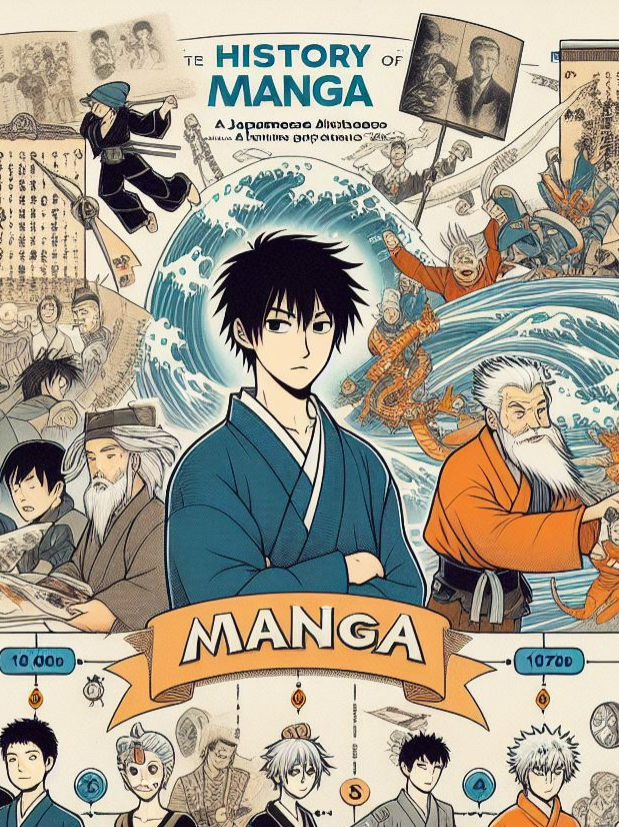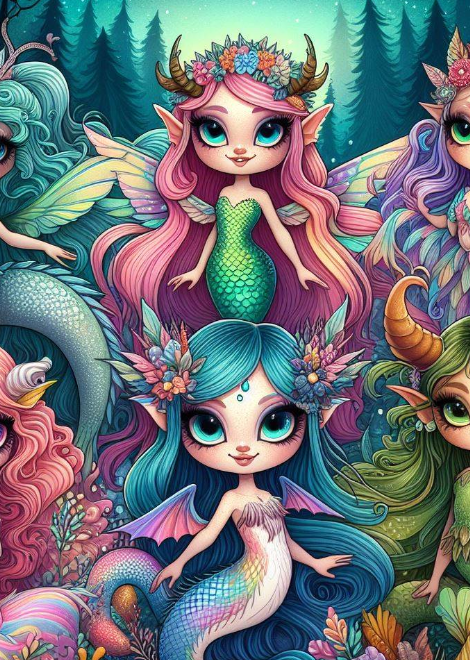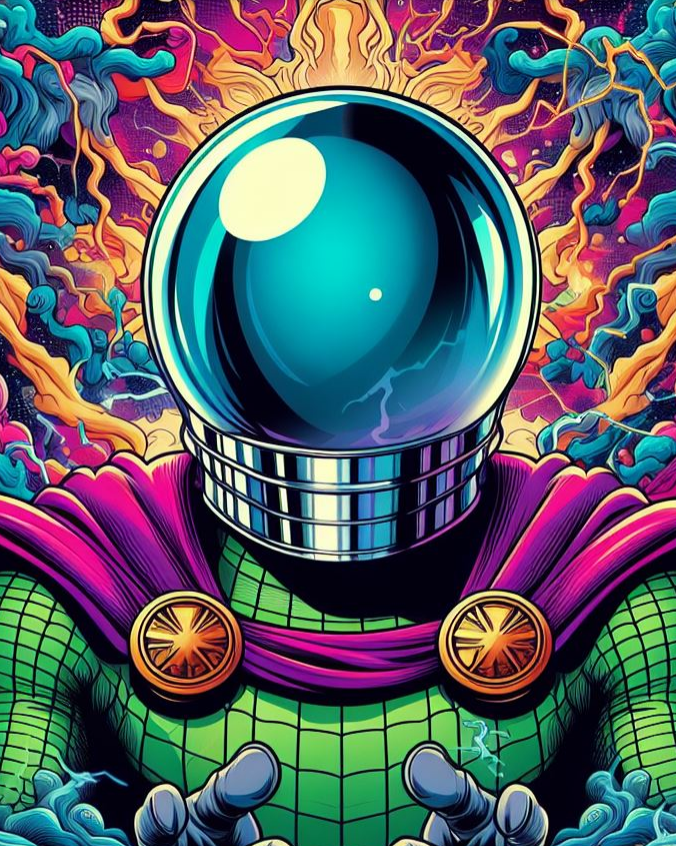How do I start reading comics?
That is a topic I am frequently asked by people who are fascinated about this beautiful medium but don’t know where to begin reading. While comics can appear impenetrable from the outside, I’m here to tell you that it’s not as difficult as you think!
This easy yet comprehensive guide will begin you on the path to reading comic books and demonstrate that it isn’t as difficult as you would believe. At the same
time, I’ll clear up any misconceptions new readers may have about starting and the medium in general.
If you want to get your friends interested in comics, read our How To Get Your Friends And Family Into Comics Guide.
Before we proceed, while I try not to use too much comics-specific jargon in this book, some may be inevitable. If you don’t know what something means, our
Glossary of Comic Book Terms will help.
Let’s Smash Some Common Misconceptions First.
There are numerous misunderstandings regarding reading comics, and these incorrect facts can sometimes function as a deterrent to future comic readers. It’s a
shame, because some of these are plain incorrect!
Once these myths are cleared up, going into comics will be simple.
You Have To Start At Issue #1.
Contrary to popular opinion, you do not have to start a comic book with issue one. For many readers, their first issue was not number one. It was a random number,
often in the hundreds.
For example, I read a lot of X-Men but didn’t start with issue one. My first issue was No. 188. While I didn’t fully understand what was going on, I quickly caught
up with characters I was unfamiliar with, which didn’t detract from my overall experience. When I was perplexed about something or wanted to learn more about a
specific character, Wikipedia provided the answers I needed.
While I admit that choosing a series in the middle of a novel might be complicated. However, if you begin with an issue that starts a story arc, it makes no
difference whether it is issue #1 or not.
It makes little difference where you start as long as you appreciate the tale and/or art!
I’ve already discussed not having to read everything that came before in greater depth.
Comic books are difficult to find.
While comic books are not ubiquitous, they are not as difficult to locate as you would believe. Comics can be found in a variety of locations, including comic book
stores, bookstores, online, and on your mobile phone.
For further information, see the ‘Where Can I Buy Comic Books And Graphic Novels’ Guide
Comic retailers are unfriendly, like the guy on The Simpsons.
If this is your only contact with a comic book vendor, you’ve been led astray. Most comic book sellers are polite, helpful, and enthusiastic about their work.
They’re open to talking with you about anything and are happy to answer your inquiries.
While the unpleasant stereotype used to be true, comic book retail has improved dramatically over the last 15 years, becoming more professional and welcoming to
all customers. As a result, encountering folks like the Comic Book Guy from the Simpsons is uncommon.
If you come across an unsavoury retailer, I’ve written a helpful approach on dealing with rudeness.
Comics are only about superheroes.
While superheroes are the most popular comics, there are numerous other genres represented, including science fiction, humor, fantasy, memoir, horror, crime,
espionage/spy, romance, adventure, war, and many more.
Some genres may require a bit more digging, but if they exist, they have most likely been explored in comics.
It’s too difficult to figure out the history of the series and characters.
The late Stan Lee is credited with saying, “Every comic is someone’s first.” It’s something that many authors and editors, particularly those at Marvel and DC,
consider while creating comics.
Writers will keep readers up to date on what they need to know via exposition and other storytelling tactics, and editors will frequently include recap pages at the
beginning of comic books.
Furthermore, given the power of the internet, even the most complicated histories are not that difficult to unravel. The solutions are readily available on sites such
as Wikipedia, Comic Vine, and a number of wikis.
Furthermore, knowing the complete history is not essential. Not every single event that a character has experienced informs their current story, just as it does for
real individuals. After a given amount of time, a character’s past is frequently forgotten. Sometimes they are completely forgotten!
The Simple Steps to Start
Okay, now that we’ve cleared up some myths, let’s get started reading comics! Consider which kinds of comics you want to read. This can be difficult at first. If you’re unsure, here are some basic questions to help you figure it out: What movies, novels, TV series, or video games do you like? Which comic book movies did you like? What kinds of stories would you like to read? Your response(s) could be as basic as “I want to read Batman,” or as sophisticated as “I am interested in stories set in a dystopian future.” Once you have an answer, you may begin looking for comic books that meet those requirements. Another technique to determine what types of comics you wish to read is to look at what is currently available. This website features a constantly expanding reading recommendations section, which is well-stocked with fresh reader-friendly reads. There are also other reading recommendation lists for a variety of topics, personalities, and themes to help you get started. As previously said, comic books are about more than just superheroes. As a result, you’re not limited to what Marvel and DC produce. There are numerous additional outstanding publishers, including Image Comics, Boom Studios!, Kodansha USA, Fantagraphics, Drawn and Quarterly, IDW Publishing, Dark Horse Comics, Viz, Archie Comics, Scholastic, Europe Comics, AdHouse Books, and many others.
Okay, now that we’ve cleared up some myths, let’s get started reading comics!
Consider which kinds of comics you want to read.
This can be difficult at first. If you’re unsure, here are some basic questions to help you figure it out:
What movies, novels, TV series, or video games do you like?
Which comic book movies did you like?
What kinds of stories would you like to read?
Your response(s) could be as basic as “I want to read Batman,” or as sophisticated as “I am interested in stories set in a dystopian future.”
Once you have an answer, you may begin looking for comic books that meet those requirements.
Another technique to determine what types of comics you wish to read is to look at what is currently available. This website features a constantly expanding
reading recommendations section, which is well-stocked with fresh reader-friendly reads. There are also other reading recommendation lists for a variety of topics,
personalities, and themes to help you get started.
As previously said, comic books are about more than just superheroes. As a result, you’re not limited to what Marvel and DC produce. There are numerous
additional outstanding publishers, including Image Comics, Boom Studios!, Kodansha USA, Fantagraphics, Drawn and Quarterly, IDW Publishing, Dark Horse
Comics, Viz, Archie Comics, Scholastic, Europe Comics, AdHouse Books, and many others.






/https://asuratoon.com/wp-content/uploads/2024/07/resource-vertCUnetauto_scaleLevel3width_2000.jpg)
/https://asuratoon.com/wp-content/uploads/2024/06/ChildrenoftheRuneCover01.png)
/https://asuratoon.com/wp-content/uploads/2024/06/01-3.jpg)
/https://asuratoon.com/wp-content/uploads/2021/03/cover.jpg)
/https://asuratoon.com/wp-content/uploads/2024/02/TheRegressedSonofaDukeisanAssassinCover03.png)
/https://asuratoon.com/wp-content/uploads/2024/07/GR7U7v0a4AAI4PbCUnetauto_scaleLevel3width-2000.jpg)
/https://asuratoon.com/wp-content/uploads/2024/06/IllRetireAfterSavingtheWorldCover01CUnetauto_scaleLevel3width-2000.jpg)
/https://asuratoon.com/wp-content/uploads/2021/06/battleGodCover03.png)
/https://asuratoon.com/wp-content/uploads/2021/02/replicate-prediction-yemexbbbb5cll5ugsz7ir6c4ou.png)
/https://asuratoon.com/wp-content/uploads/2021/07/solomaxlevelnewbie.jpg)
/https://asuratoon.com/wp-content/uploads/2021/04/The_lords_coins_arent_decreasing_kopyaPhotoauto_scaleLevel3width-1000.png)